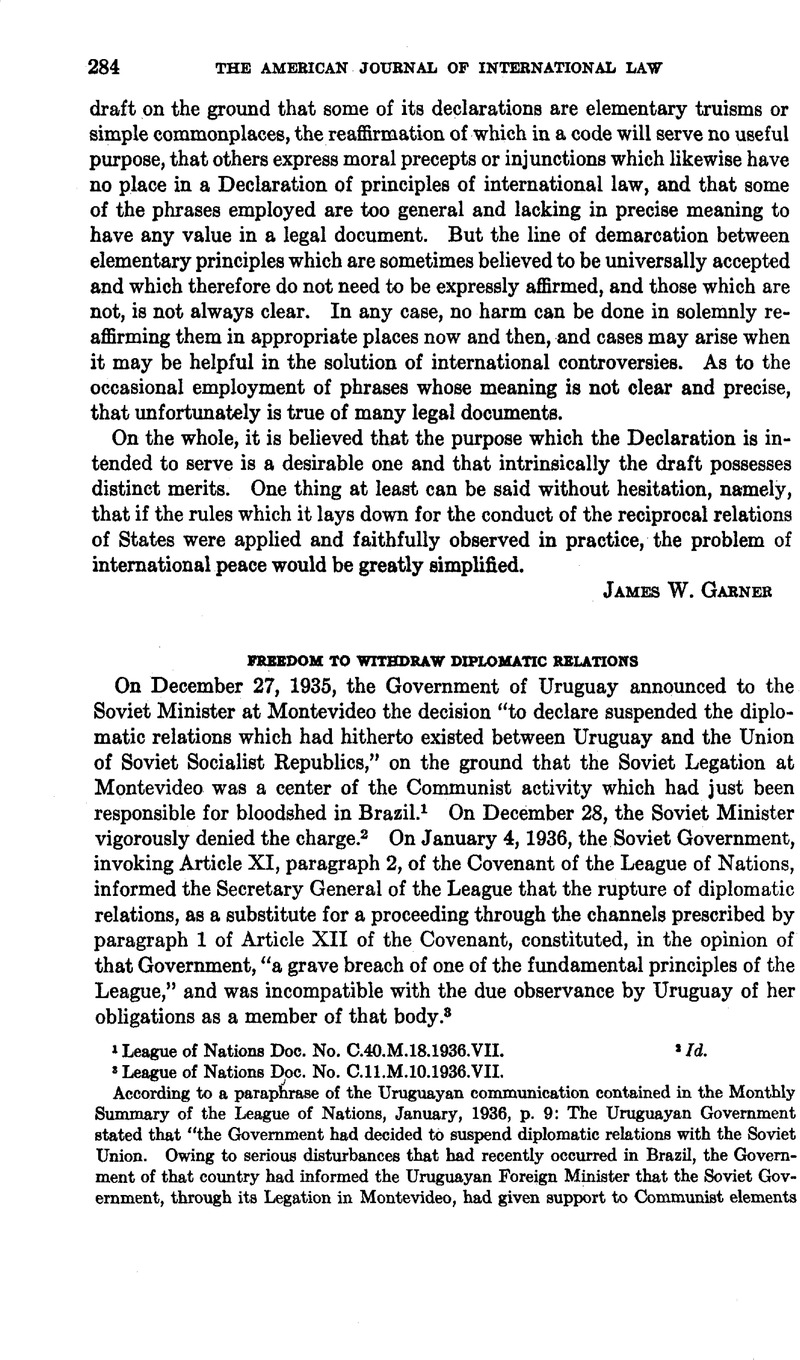No CrossRef data available.
Article contents
Freedom to Withdraw Diplomatic Relations
Published online by Cambridge University Press: 12 April 2017
Abstract

- Type
- Editorial Comment
- Information
- Copyright
- Copyright © American Society of International Law 1936
References
1 League of Nations Doc. No. C.40.M.18.1936.VII.
2 Id.
3 League of Nations Doc. No. C.11.M.10.1936.VII.
According to a paraphrase of the Uruguayan communication contained in the Monthly Summary of the League of Nations, January, 1936, p. 9: The Uruguayan Government stated that "the Government had decided to suspend diplomatic relations with the Soviet Union. Owing to serious disturbances that had recently occurred in Brazil, the Government of that country had informed the Uruguayan Foreign Minister that the Soviet Government, through its Legation in Montevideo, had given support to Communist elements in Brazil. Moreover, at the Congress of the Third International, held in Moscow in July, 1935, several speakers had expressed their sympathy for M. Prestes, Head of the Brazilian revolutionary movement. No distinction could be made between the Third International and the Soviet Government. Moreover, according to information obtained by the Uruguayan Government, the Soviet Legation in Montevideo had issued bearer cheques for large sums and for objects that could not be determined, although there was strong reason to believe that these sums had served to support the revolutionary movement in Brazil.”
4 Minutes of the Council, Jan. 23, 1936, at 10:30 a.m. .
5 Id. Both Messrs. Guani and Litvinoff discussed the matter at the meeting of the Council, Jan. 23, 1936, at 3:30 p.m.
6 Minutes of the Council, Jan. 23, 1936, at 3:30 p.m.
7 Minutes of the Council, Jan. 24, 1936, at 4 p.m. The President of the Council, Mr. Bruce of Australia, made the suggestion that led to the invocation of the aid of M. Titulesco and his two colleagues.
8 Minutes of the Council, Jan. 23, 1936, at 3:30 p.m.
9 League of Nations Doc. No. C.78.M.26.1936.VII. See, also, communication from M. Monteiro, the representative of Portugal, addressed to the Secretary General, Feb. 19, 1936, League of Nations Doc. No. C.101.M.42.1936.VII.
10 See Mr. Knox, Secy, of State, to the Nicaraguan Chargé d’Affaires, Dec. 1, 1909, For. Bel. 1909, 455.
11 Minutes of the Council, Jan. 24, 1936, at 4 p.m.


